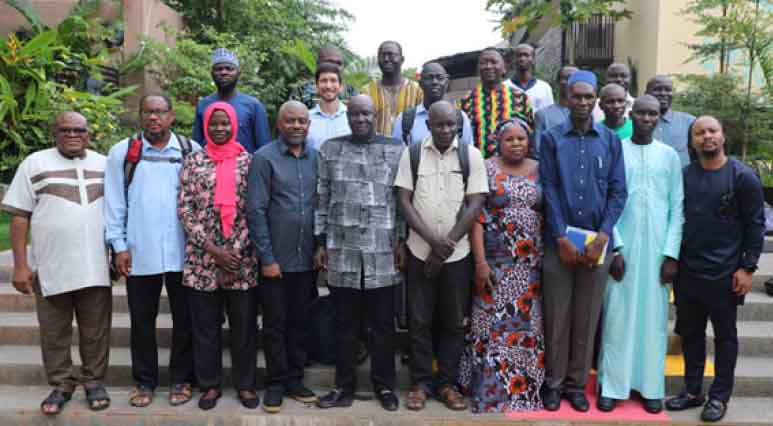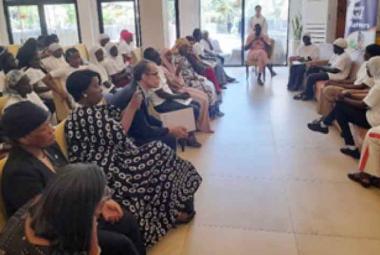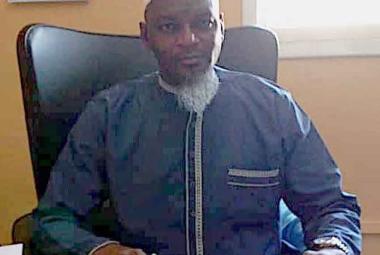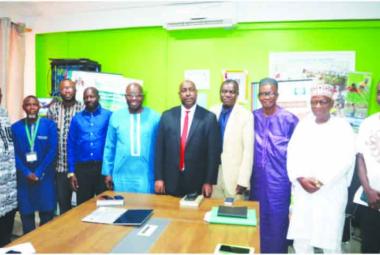By: Lamin B. Darboe
The Economic Community of West African States (ECOWAS) has successfully concluded its field monitoring and evaluation mission in The Gambia, focusing on the effectiveness of humanitarian support provided in response to the 2022 floods and food crises.
Over the past week, the ECOWAS delegation conducted thorough evaluations and engaged directly with the flood-affected communities of Chitah (Nyofelleh), Fass Omar Saho, Munyagen, and Kanifing Municipal Council (KMC) to ensure that the aid is effectively meeting the needs of the most vulnerable populations.
The mission was led by Mr. Mohamed Ibrahim, Head of the Humanitarian and Disaster Risk Reduction Division at ECOWAS. Under his leadership, the delegation focused on assessing the impact of the aid distributed and identifying areas for further improvement. “This visit allowed us to see firsthand the impact of our interventions and understand where we can enhance our support. Our commitment is to ensure that the assistance we provide leads to lasting, positive outcomes,” said Mr. Ibrahim.
During the mission, Mr. Godwin JNR JAY ILUKHOR, an ECOWAS Consultant specialising in data analysis and monitoring and evaluation, presented key findings from the field visits. He observed that while the cash transfers have provided essential relief to many, there are opportunities to refine and enhance the programme to better serve the needs of the affected communities.
“The cash transfers have been critical in helping beneficiaries meet their immediate needs, such as purchasing food and repairing damaged homes. However, our analysis also points to areas where we can further improve,” noted Mr. Ilukhor.
The delegation engaged with several key local figures, including Mr. Sana Dahaba, Executive Director of the National Disaster Management Agency (NDMA); and Mr. Ngagne Jeng, Municipal Disaster Coordinator for the Kanifing Municipal Council. Both leaders emphasised the importance of the partnership with ECOWAS in delivering effective aid to those in need.
Mr. Dahaba reflected on the ongoing cash transfer programme, which has reached 2,650 households across The Gambia, including 661 within the Kanifing Municipal Council. “Partnering with ECOWAS has been vital in ensuring that our most vulnerable populations in Nyofelleh, Fass Omar Saho, Munyagen, and Kanifing receive the support they need. The lessons we’ve learned during this mission will guide us in better preparing for future challenges,” he remarked.
Mr. Jeng praised the transparency and efficiency of the aid distribution process, which has been instrumental in maintaining community trust. “Our collaboration with ECOWAS has been a key factor in the successful delivery of aid. We look forward to continuing this strong partnership to further support our communities,” he added.
As the mission concluded, the ECOWAS delegation outlined several key areas for future focus:
- Enhanced Communication: Increasing efforts to inform communities about available aid and involving them more closely in the process.
- Improved Access: Working with local governments to ensure that even the most remote communities, such as Nyofelleh, Fass Omar Saho, Munyagen, and areas within Kanifing Municipal Council, can access the assistance they need.
- Comprehensive Support: Beyond cash transfers, ECOWAS is considering additional programs that will help communities rebuild more effectively.
The mission’s findings and recommendations will play a crucial role in shaping ECOWAS’s future humanitarian strategies, ensuring that the needs of The Gambia’s most vulnerable populations are met with timely and effective support.







